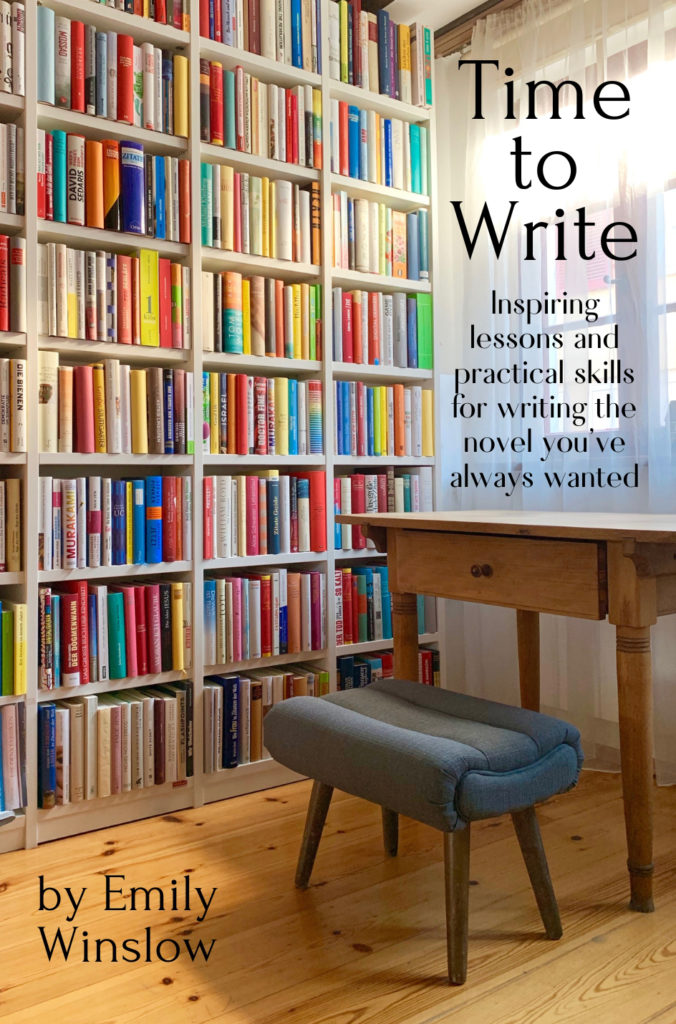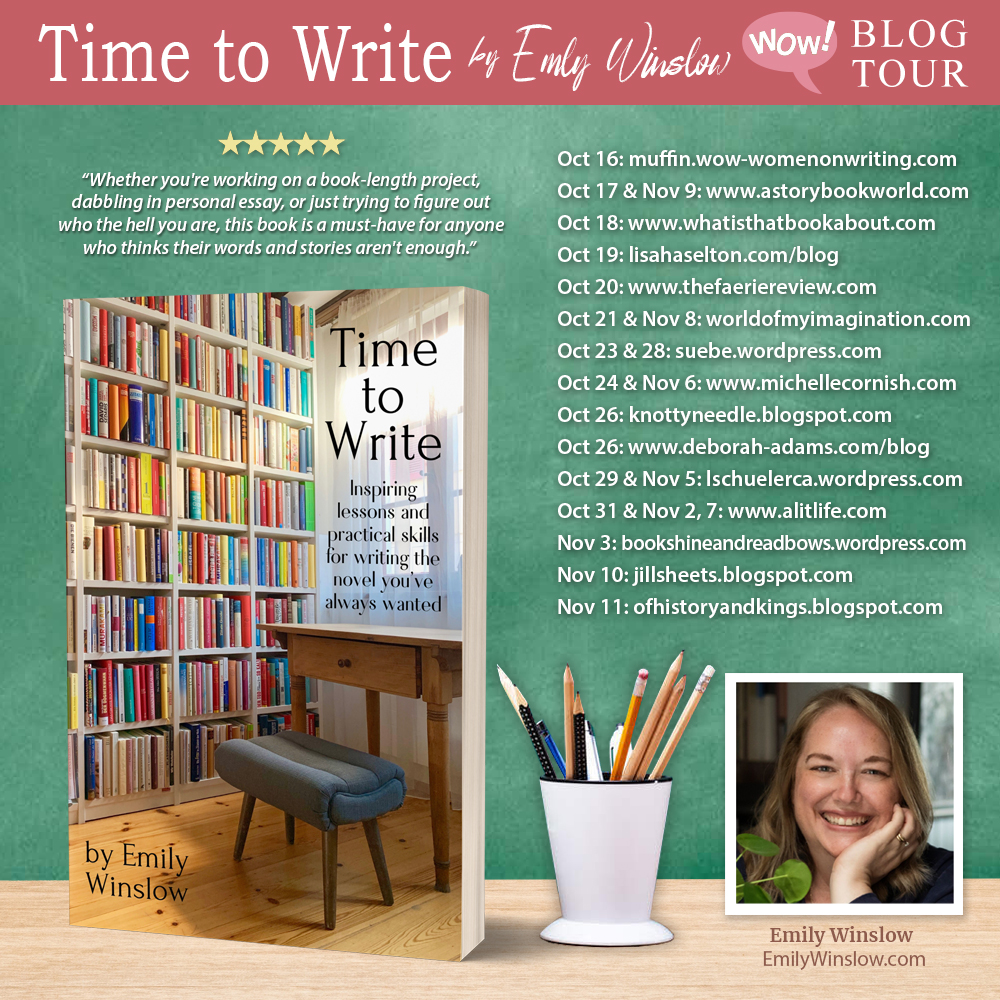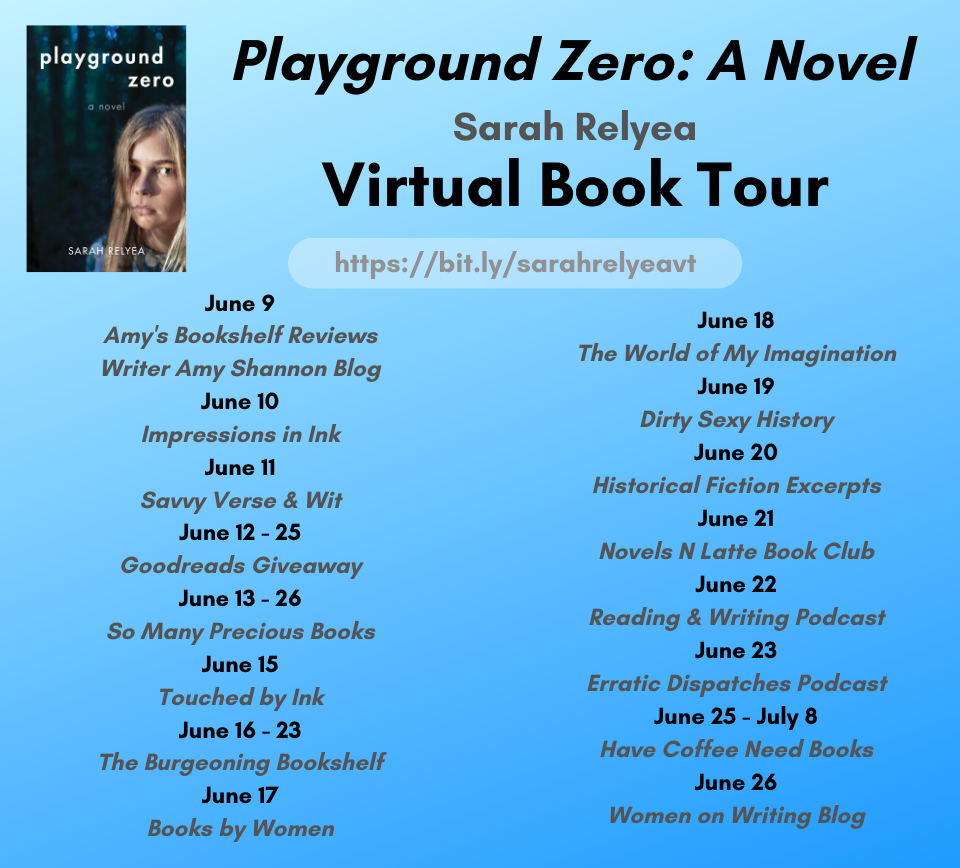I’m excited to share this guest post by author Emily Winslow who wrote the amazing book on writing I reviewed recently called Time to Write. Don’t miss my review and then her helpful guest post on daydreaming. Take it away Emily!
So many people feel guilty about daydreaming, rest, and leisure. But they’re essential parts of the work of writing.
Daydreaming is where ideas percolate. What you’re drawn to think about when your mind wanders may be what you should be writing. The ideas you come up with while daydreaming may be exactly what your plot needs. Give yourself the time to open up emotionally and creatively. Become aware of what your mind is truly interested in.
Self-discipline is also important. But we live in a culture that immerses us in the need for self-discipline. I don’t write about it much because I feel like that’s something most of my readers will already know and already over-emphasize. Do you need self-discipline? Yes! But you also need to daydream. Don’t feel guilty about taking the time for that too. Make room for it in your writing regimen.
Rest is where you get the energy to tell your stories, and it can be mental as well physical. I know that many of us have to work long hours, and only have short bursts in which to write. Maybe some of those bursts can be a walk in a beautiful place, or a rejuvenating nap. If you decide to write on your lunch break five days a week, for example, and you’re finding it hard to keep up with, maybe two of those sessions can be walks instead. It might be that relaxing your expectations of yourself a bit can help you stay committed to your goal for longer.
Leisure is how I transition into my “writing mind.” I found that when my husband had the kids and I had, say, four hours to write, I wasn’t using all of that time for writing. I had to ease in, often by reading blogs I enjoyed or watching something on TV, while thinking about my project in the back of my mind. Then for the last hour or two I was able to write. I used to feel guilty about being “lazy,” but really that’s just what my mind needs to do first. Now I build in time for it, without shame, and I enjoy it more fully—while still getting the same amount of work done.
When we feel guilty about these things, not only is it unnecessary and hurtful, but we also miss out on some of the benefits. If daydreaming was just laziness, for example, why would we look to it for ideas and inspiration? If we treat daydreaming, rest, and leisure as essential parts of the process, and proactively make room for them, we can get things done without fighting our natural selves.
About the Author, Emily Winslow

Emily Winslow is the author of a series of crime novels and a memoir. Her books have been published by Random House, HarperCollins, Allison & Busby, and Shanghai Translation Publishing House.
Her novels (The Whole World, The Start of Everything, The Red House, and Look For Her) have been called “brilliant” (The Washington Post), “vivid” (Parade magazine) and “dazzling” (Shelf Awareness). Her memoir, Jane Doe January, is “meticulously constructed and ultimately terrifying” (The New York Times), “potent” (Kirkus), and “compelling” (Bustle).
She grew up in the U.S. and now lives in Cambridge, England teaching for the University of Cambridge and for Cambridge Creative Writing Company.
Find Emily online:
www.CambridgeCreativeWritingCompany.com
Facebook: emilywinslow.author
Instagram: emilycwinslow
About the Book, Time to Write

Have you always wanted to write a novel?
Emily Winslow will help you develop the mindset and skills to get you started, keep you going, and see you through. Time to Write is a creative writing guide aimed at anyone who wants to write a novel and could use some support.
It contains 49 lessons, each easy to read and packed with insights based on experience. Emily has taken her own work to high levels with major publishers, and has learned from teaching at Cambridge University what makes students light up and what makes their work drastically, excitingly improve.
This book is full of encouragement, recognizing and affirming different work styles. It’s a total handbook, teaching a broad range of specific writing skills with insight and clarity as well as covering topics around writing in-depth, such as how to give and take critique and how to evaluate publishers and agents.
It’s time to write the stories inside you!
Purchase a copy of Time to Write by visiting Amazon, Barnes and Noble, Kobo or Apple Books. Make sure you also add Time to Write to your Goodreads reading list.




